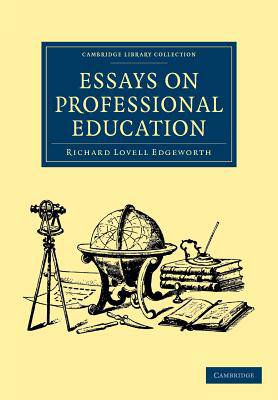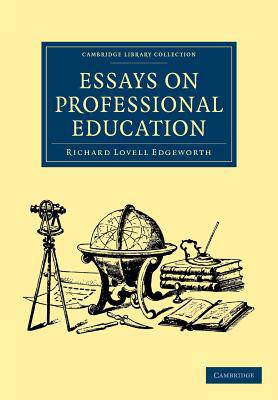
Bedankt voor het vertrouwen het afgelopen jaar! Om jou te bedanken bieden we GRATIS verzending (in België) aan op alles gedurende de hele maand januari.
- Afhalen na 1 uur in een winkel met voorraad
- In januari gratis thuislevering in België
- Ruim aanbod met 7 miljoen producten
Bedankt voor het vertrouwen het afgelopen jaar! Om jou te bedanken bieden we GRATIS verzending (in België) aan op alles gedurende de hele maand januari.
- Afhalen na 1 uur in een winkel met voorraad
- In januari gratis thuislevering in België
- Ruim aanbod met 7 miljoen producten
Zoeken
Omschrijving
The scientist Richard Lovell Edgeworth (1744-1817), educated at Trinity College, Dublin, and Oxford, was known for his significant mechanical inventions. He was a Member of the Lunar Society of Birmingham, where he exchanged ideas with other scientists, including James Watt. However, Edgeworth was also greatly interested in education: drawing on his own experiences of raising twenty children (by his four wives), in 1788 he published, with his daughter, the poet Maria Edgeworth, his famous two-volume Practical Education (also reissued in this series). The work was very influential, and led to this book, published in 1809, a series of essays on professional education (again written in co-operation with Maria), dealing with the nature of different occupations in a state. He discusses education for the professions, including the Church, the Army and the Law, but also refers to the education of statesmen, gentlemen and even princes.
Specificaties
Betrokkenen
- Auteur(s):
- Uitgeverij:
Inhoud
- Aantal bladzijden:
- 510
- Taal:
- Engels
- Reeks:
Eigenschappen
- Productcode (EAN):
- 9781108047463
- Verschijningsdatum:
- 24/05/2012
- Uitvoering:
- Paperback
- Formaat:
- Trade paperback (VS)
- Afmetingen:
- 170 mm x 244 mm
- Gewicht:
- 802 g

Alleen bij Standaard Boekhandel
+ 212 punten op je klantenkaart van Standaard Boekhandel
Beoordelingen
We publiceren alleen reviews die voldoen aan de voorwaarden voor reviews. Bekijk onze voorwaarden voor reviews.









